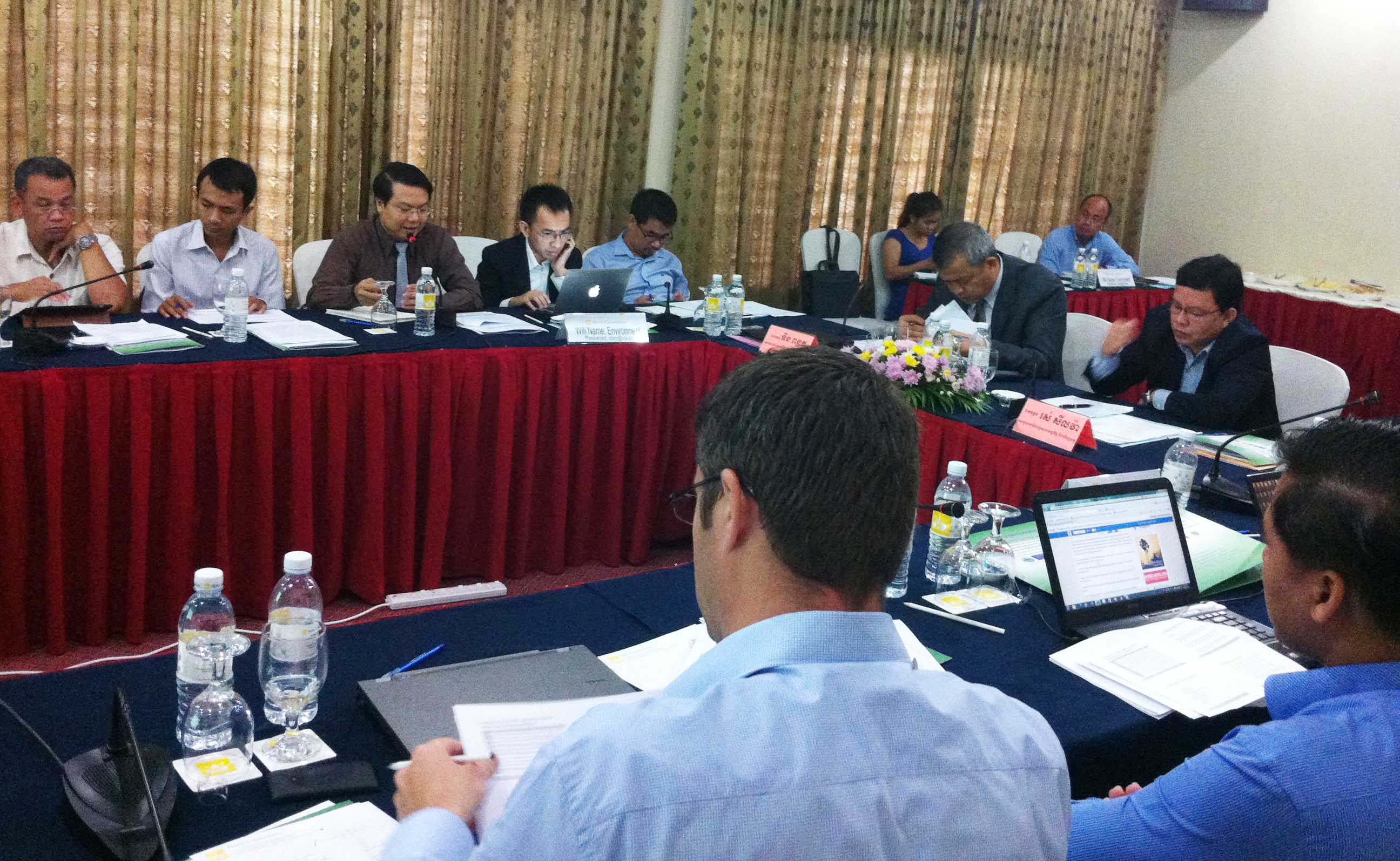
Phnom Penh, a seminar on implications of climate change for economic policy and public finance was organized by the Ministry of Environment on 03 September 2014 at Cambodiana Hotel, with 21 participants from senior officials from the Ministry of Economy and Finance (MoEF), the Supreme National Economic Council (SNEC) and the Ministry of Environment (MoE).
Initial estimates of climate change impacts for Cambodia are around 1% of annual GDP loss by 2030 and will reach 3.5% by 2050, if no adaptation measures are taken. The main priority sectors contributing to these losses are expected to be agriculture, health (climate‐sensitive diseases), water resources, infrastructures, loss and damage to people/property from extreme events, and losses in the energy sector, said H.E. Tin Ponlok, Secretary General of the National Council for Green Growth of the MoE, during the opening session. The seminar, therefore, would like to discuss a programme of work to further study these impacts in various sectors, and inform economic policies and public investment strategies.
H.E. Ros Seilava, Under Secretary of State of the Ministry of Economy and Finance and member of the National Climate Change Committee, expressed his strong support to the MoE work in undertaking an initial analysis of climate change implications on economic policy and public finance that could protect economic growth from external shocks caused by climate change impacts. He further underlined the important role of MoEF and SNEC in the Cambodia Climate Financing Framework, and that today seminar would bring economists and environmentalists to exchange ideas and ensure rigorous analysis and recommendations for the Government to consider.
From a public finance perspective, there is also a need for Cambodia to demonstrate “readiness” to attract and manage climate change finance. Global climate finance mechanisms are gradually becoming operational, with the Green Climate Fund expected to begin operations in 2015. Even under conservative scenarios, Cambodia could aim to attract several hundred million USD per year by 2018.
If used strategically, climate finance could play a catalytic role to steer private and public investment towards climate-smart solutions, and help realize the vision of a climate-resilient and low-carbon society. Some ways forward were discussed, including institutional arrangement at the national level, refinement and strengthening of the cost-benefit analysis of investments in the context of climate change, improvements in the tracking and analysis of climate finance through conducting annual reviews on climate expenditure, analysis on economic tools and instruments to incentivize private sector investments in CC adaptation as well as the designing and testing of climate financing /economics training modules for government officials.

